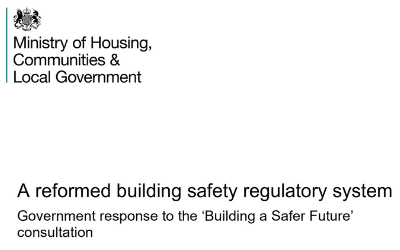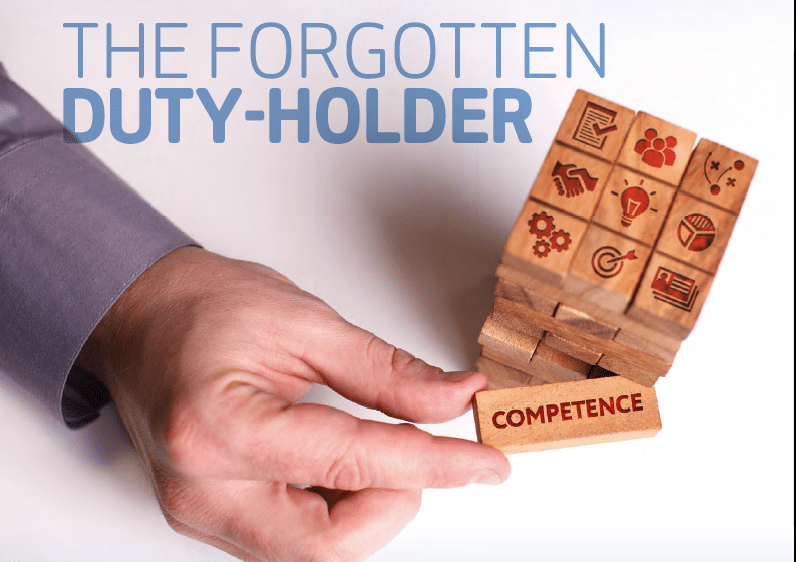25.3.20 –It was this morning confirmed that yesterday there was a telephone conference of the Build UK Major Contractors who discussed a collective decision for sites to shut. Following that call, a number of members went back to their Boards and have now confirmed that they are closing their sites. Read the full statement from Build UK here
25.3.20 What to do if you do not feel the conditions you are working in are safe – If any FIS Members are being expected to work in an unsafe way, the HSE operates a whistle blowing service
25.3.20 Companies to receive 3-month extension period to file accounts during COVID-19 – From today (25 March 2020), businesses will be able to apply for a 3-month extension for filing their accounts.
25.3.20 Government clarifies rules that confirm work can continue on people’s homes – Work carried out in people’s homes, for example by tradespeople carrying out repairs and maintenance, can continue, provided that the tradesperson is well and has no symptoms. Again, it will be important to ensure that Public Health England guidelines, including maintaining a two metre distance from any household occupants, are followed to ensure everyone’s safety.
No work should be carried out in any household which is isolating or where an individual is being shielded, unless it is to remedy a direct risk to the safety of the household, such as emergency plumbing or repairs, and where the tradesperson is willing to do so. In such cases, Public Health England can provide advice to tradespeople and households.
No work should be carried out by a tradesperson who has coronavirus symptoms, however mild.
24.3.20 BMF clarifies Builders’ Merchants’ role during COVID-19 Restrictions
24.3.20 The Chancellor says help is coming for the self employed – You can read the House of Commons Public Committee Amendments: Coronavirus Bill pages 14-18 here. Alternatively download the amendments PDF here.
24.3. 20 Support for Apprentices – CITB is paying, in advance, apprenticeship attendance grants for second and third year apprentices to help keep skills in the construction industry amid the Coronavirus outbreak.
The payments will be made from 6 April for apprentices already subject to CITB grant support and who are currently in the second or third year of their apprenticeship for the remainder of the year. The payments are expected to be able to support 7,500 apprentices, and will advance up to £2,500 in attendance grant at a time when retaining apprentices is critical. To read the press release on this please click here.
CITB has worked with the Education and Skills Funding Agency (ESFA) to discuss funding rules on breaks in learning for apprentices. ESFA have issued guidance for apprentices, employers and training providers, you can read the guidance here.
CITB has helped apprentices return home from National Construction Colleges in Bircham Newton, Erith, Kings Norton and Inchinnan; every CITB apprentice is being contacted by their Apprenticeships Officer this week. Online learning tools (functional skills videos) have also been made available to help apprentices continue their studies from home. These videos are available to all apprentices, not just CITB’s. Information on how to register and access the videos can be found here.
A dedicated email helpline for all apprentices and their employers providing advice and signposting during COVID-19 has been set-up by CITB. Please e-mail CITB at Apprenticeships.COVID19@citb.co.uk for assistance.
24.3.20 New guidance for employees, employers and businesses about protection from eviction for commercial tenants and extension of BID arrangements.
24.3.20 Reports that there have been several instances today of police officers visiting construction sites and requesting the closure of these. BEIS have emphasised that this action is “not consistent with the Government guidance, which is clear that construction sites should continue to operate if they can do so in a manner consistent with PHE guidance, recognising that the vast majority of construction work cannot be undertaken from home.
We are working with the IPA and the Home Office to ensure that accurate information is provided to the police, to prevent this from happening in future. If you receive questions from your members, please do explain the position as set out above.”
24.3.20 The Coronavirus Business Interruption Loan Scheme (CBILS), specifically for SMEs and provided by the British Business Bank via your usual bank or lender, is now available. There is no maximum cap set for lending supported through the scheme, so there is no immediate need to approach your lender if your business does not need finance at the moment
24.3.20 Through BuildUK, as part of their response to the Covid-19 pandemic, FIS is asking members to complete this survey on the support that The UK Government has put in place a number of actions to support UK businesses through the Covid-19 pandemic. All individual responses will remain confidential.
24.3.20 FIS has written to the Construction Minister, BEIS and thc CLC for urgent clarification to be issued. Current position from COBR, sites should continue to operate if they can do so in a manner consistent with PHE guidance (see CLC Operating Procedures), recognising that the vast majority of construction work cannot be undertaken from home.
24.3.20 Major merchant groups announce they will pause distrubution whilst they await clarity from the Government, CCF and Minster have both put out statements on social media to advise the sector. All Saint Gobain businesses, manufacturing and distribution are closing for 24 hours from this morning whilst they seek clarification from government on how they can operate within the new government guidelines.
23-3-20 Prime Minister’s speech further tightens guidance – The speech included new guidance on staying at home and away from others. Advice states you should only leave the house for one of four reasons:
● Shopping for basic necessities, for example food and medicine, which must be as infrequent as possible.
● One form of exercise a day, for example a run, walk, or cycle – alone or with members of your household.
● Any medical need, or to provide care or to help a vulnerable person.
● Travelling to and from work, but only where this absolutely cannot be done from home.
You can read the full advice here.
23-3-20 Update Guidance from the Construction Leadership Council Issued:
We are in exceptional circumstances, and are doing our utmost to keep construction sites operational wherever it is practical and safe to do so. Whilst the guidance from Public Health England may change in future, for the time being construction sites of any size that are operating during the Coronavirus Covid-19 pandemic need to ensure they are protecting their workforce and minimising the risk of spread of infection.
To implement the Government’s social distancing recommendation the Construction Leadership Council has now published Site Operating Procedures. I would strongly recommend that these procedures are implemented by every operational construction site, with the aim of us having a standard approach across the industry that all firms and workers can adopt.
It is also vital that the health and safety requirements of any construction activity must not be compromised at this time. If an activity cannot be undertaken safely due to a lack of suitably qualified personnel being available, or social distancing being implemented, it should not take place. We are aware that emergency services are also under great pressure and may not be in a position to respond as quickly as usual.
Andy Mitchell
CLC COVID-19_Site Operating Procedures – 23 March 2020
23.3.20 – Updated eligibility criteria for COVID-19 Corporate Financing Facility to include the Bank of England’s eligibility criteria here – it has been confirmed that this will be available to all. Full details still to be announced through the Bank of England, but outline details now available.
23.3.20 – Support for businesses through the Coronavirus Business Interruption Loan Scheme – The scheme is now open for applications. To apply, you should talk to your bank or one of the 40 accredited finance providers (not the British Business Bank) as soon as possible, to discuss your business plan. You can find out the latest on the best ways to contact them via their websites.
All major banks are offering this scheme. If you have an existing loan with monthly repayments you may want to ask for a repayment holiday to help with cash flow.
The full rules of the scheme and the list of accredited lenders are available on the British Business Bank website.
21.3.20 – Guidance on critical workers has now been published – Construction workers are not explicitly referenced in the definition, however the document refers to flexibility and FIS has confirmed with BEIS that this will cover construction workers who are doing jobs that are essential to support public services and consequently workers falling in this category will be able to access school places should they not be able to make alternative provision.
It is important to note that the definition of critical workers is solely for the purposes of allocating places in schools. Everyone else in the industry can continue to work as normal, subject to following advice re: their health and risks of infection.
21.3.20 – Temporary relaxation of the enforcement of the EU and GB drivers’ hours rules: all sectors carriage of goods by road
20.3.20 – Chancellor announces new package of support including VAT holiday, extensions of the interest free period for Coronavirus Business Interruption Loan Scheme and more support for the self employed.
20.3.20 – CITB announces apprenticeship support package the message is please please hold onto your apprentices for the moment help is coming
20.3.20 – New Public Procurement Notice advises public sector to look at how supply chain can be supported includes Government Procurers encouraged to pay suppliers even if work is suspended.
- Urgently review their contract portfolio and inform suppliers who they believe are at risk that they will continue to be paid as normal (even if service delivery is disrupted or temporarily suspended) until at least the end of June.
- Put in place the most appropriate payment measures to support supplier cash flow; this might include a range of approaches such as forward ordering, payment in advance/prepayment, interim payments and payment on order (not receipt).
- If the contract involves payment by results then payment should be on the basis of previous invoices, for example the average monthly payment over the previous three months.
- To qualify, suppliers should agree to act on an open book basis and make cost data available to the contracting authority during this period. They should continue to pay employees and flow down funding to their subcontractors.
- Ensure invoices submitted by suppliers are paid immediately on receipt (reconciliation can take place in slower time) in order to maintain cash flow in the supply chain and protect jobs.
We have asked the question as to whether paying any withheld retentions would be possible too.
New guidance for UK businesses trading internationally – including how the DIT is looking to help businesses whose supply chain has been affected by coronavirus (COVID-19) find alternative suppliers.
20.3.20 – Advice on how to access evidence for work absence has now been included in guidance for employees, employers and businesses details here and on online isolation note on providing proof of coronavirus absence from work that can be accessed here.
20.3.20 – New advice from HM Treasury on to access financial support from the Government if you or your business has been affected by COVID-19, this covers SSP (including self-isolation), Universal Credit, mortgage repayment, loans and the new temporary Coronavirus Business Interruption Loan Scheme, more details here
20.3.20 – Potential COVID-19 (Coronavirus) Economic and Construction Impacts report has been pulled together by the Construction Products Association, available to download here
19.3.20 – Fresh concerns over the return of plasterboard allocation following announcement from BG – more information here
19.3.20 – New advice from HM Treasury How to access government financial support if you or your business has been affected by COVID-19, this covers SSP (including self-isolation), Universal Credit, mortgage repayment, loans and the new new temporary Coronavirus Business Interruption Loan Scheme – download the factsheet here
19.3.20 – CITB Revise Support to Employers to ease cash flow: the 20 week grant claim processing rule is frozen, CITB are urging employers to check their Grant Online accounts for claims which need authorising, and to sign and return any paper Grant Claim forms we have issued as quickly as possible. FIS can offer free virtual skills clinics to help you to optimise your returns. To book your slot, email: amandascott@thefis.org
19.3.20 – Heath and Safety test centre from Friday 20 March 2020 are temporarily closed they are working on alternative ways to test. CITB have asked all all Site Safety Plus centres to relax cancellation and refund policies, additionally, any delegate whose SMSTS/SSSTS achievement has expired since 15 March 2020 and who hasn’t been able to renew in time due to COVID-19, will be allowed to take the refresher rather than the full course. Quality Assurance activities are reduced to electronic responses. Investigations will be risk assessed case by case as CITB’s compliance teams are committed to continuing their important work of identifying and protecting the construction industry from fraud risks relating to training delivery.
19.3.20 – Guidance from Midas sets the right tone and underpins the position of the Construction Leadership Council, the construction industry is resilient and do all we can to keep sites open. Read the statement here
19.3.20 – New Public Health Poster – developed to support employers in sharing best practice click here to access the poster
19.3.20 CSCS latest: CSCS are asking the industry to support the following temporary measures:
- Requesting employers and those responsible for site access and card checking procedures to use their discretion towards workers whose cards have expired since mid-March onward and who can provide evidence that they have been unable to sit their test or undertake the required training as a result of the closure of Test and Training centres. This is at the employer’s discretion until the situation has stabilised.
- CSCS has extended the grace period for card renewals from six months after the card expires to 12 months. This means that the card can be renewed, once the CITB Health, Safety and Environmental test has been passed, up to one year from the card’s expiry date.
For more details please click here
18.3.20 – Business rates: expanded retail discount – guidance. Members with “showrooms may be able to benefit” – more advice here
18.3.20 – BLOG: COVID-19: The vaccine that is needed to save construction firms, FIS CEO Iain McIlwee looks at planning for worst case scenario and what measures would be needed to save construction companies should sites close
18.3.20 – FIS updates guidance and provides template resources on home working (thanks to Mansell Finishes for sharing) and on Lay-off procedures, Short-time working and Redundancy (courtesy of Citation) – more here
18.3.20 – Schools in England, Wales and Scotland to close from Friday, Northern Ireland from Monday (for all but vulnerable and children of essential workers).
18.3.20 – CITB taking action, developing training materials to keep sites working, time bound qualifications and cards, closure of National Construction Colleges, all spring Roadshows cancelled to be moved on-line, electronic apprentice reviews, support for CITB Approved training providers, extensions on renewal periods for Site Managers (SMSTS) and Site Supervisors Safety Training Schemes (SSSTS) and postponement of Construction Ambassador events. For more information click here
18.3.20 – CSCS Ask Industry to Support temporary Measures, Pearson’s Health and Safety test Centres capacity reduced by 50% to allow for additional spacing between candidates. Card renewal grace period extended from six months to 12 months. For more information click here.
18.3.20 – Statement from Courts during coronavirus pandemic: Robert Buckland statement. “Our Crown and Magistrates courts provide a vital public service and until instructed otherwise, we expect all lawyers, magistrates, jurors, witnesses, defendants and court staff to continue to attend court as required, so the interests of justice can be served” More here.
17.3.20 – Extending announcements in last week’s Budget (see below), the Chancellor today announced he would take further action including:
- support for liquidity amongst large firms, with a major new scheme being launched by the Bank of England to help them bridge Coronavirus disruption to their cash flows through loans
- increasing the amount businesses can borrow through the Coronavirus Business Interruption Loan Scheme from £1.2 million to £5 million, and ensuring businesses can access the first 6 months of that finance interest free, as Government will cover the first 6 months of interest payments
- including new legal powers in the Covid Bill enabling us to offer whatever further financial support we think necessary to businesses
- He also confirmed Mortgage lenders have agreed they will support customers that are experiencing issues with their finances as a result of Covid-19, including through payment holidays of up to 3 months. This will give people the necessary time to recover and ensure they do not have to pay a penny towards their mortgage in the interim.
- Finally he confirmed that implementation of ir35 reforms would be delayed for 12 months.
Full details are available here
17.3.20 – The Construction Leadership Council with the support of the Construction Products Association and Build UK have written to the Prime Minister to affirm that it is vital that our construction sites are able to remain open. Read the full letter here.
17.3.20 – FIS COVID-19 Risk Management Toolkit updated to include latest advice on what to do if there is a suspected case on site and communicating with your team it has also been simplified Click here to access the Toolkit
17.3.20 – FIS develops new template corresponence to support communicatino with LOSCs covering welfare and hygiene advice, reaction to symptoms and information on how to claim Universal Credit if they are not able to report to site. This resource can be downloaded here.
17.3.20 – Foreign Secretary advises against all non essential overseas travel. British people who decide that they still need to travel abroad should be fully aware of the increased risks of doing so. That includes the risk that they may not be able to get home, if travel restrictions are put in place. Anyone still considering travel to be realistic about the level of disruption they are willing and able to endure, and to make decisions in light of the unprecedented conditions we face. More here.
16.3.20 – PM announces that now is the time for everyone to stop non-essential contact with others and to stop all unnecessary travel. People are advised to start working from home where they possibly can. If you live alone and you have symptoms of coronavirus illness (COVID-19), however mild, stay at home for 7 days from when your symptoms started. if you live with others and you or one of them have symptoms of coronavirus, then all household members must stay at home and not leave the house for 14 days. The 14-day period starts from the day when the first person in the house became ill.
- For advice for individuals in terms of recognising symptoms and taking action – click here
- For advice related to travel internationally – click here
- For advice for employers and businesses – click here
- Many businesses will be impacted by childcare issues, the latest advice for educational establishments is available here

















